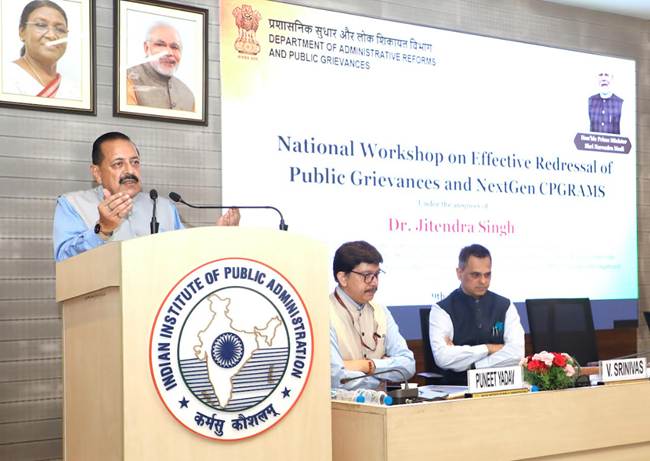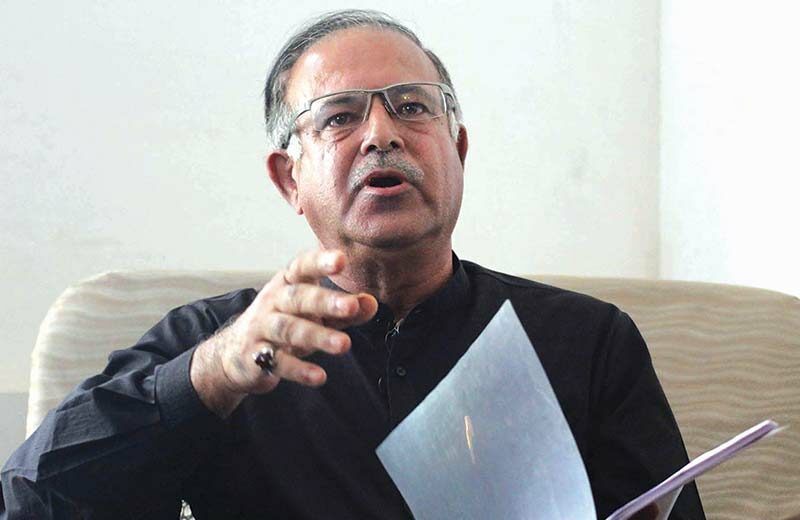NEW DELHI: Union Minister Jitendra Singh on Wednesday said over 26 lakh public grievances are filed each year, and the government must treat them as opportunities to identify flaws in policies and administrative rules.
Addressing an event, the Union minister of state for personnel called for a fundamental shift in the way public grievances are handled and emphasised that their redressal must go beyond disposal to ensure citizens’ satisfaction.
“Grievance redressal ought to be a tool for systemic reform and ease of living,” he said.
Addressing the National Workshop on ‘Effective Redressal of Public Grievances, NextGen CPGRAMS and Progress Review’, he said the government must treat grievances as opportunities to identify flaws in policies and administrative rules.
The Centralised Public Grievance Redress and Monitoring System (CPGRAMS) allows citizens to raise grievances online.
Tracing the evolution of grievance redressal in India, the minister recalled how, in 2014, only about two lakh grievances were filed annually, and many government websites created for this purpose remained unused.
“Today, more than 26 lakh grievances are filed every year. This reflects a transformation in public trust and the system’s responsiveness,” he said, crediting the government’s push for citizen-centric digital governance under Prime Minister Narendra Modi’s leadership.
Singh acknowledged the growing global interest in India’s grievance redressal model, with countries like Bangladesh, the Maldives, and South Africa sending delegations to study the Centralised Public Grievance Redress and Monitoring System (CPGRAMS) and related initiatives such as the digital life certificate system.
He described grievance redressal as integral to the prime minister’s vision of “maximum governance, minimum government” and stressed that accountability, transparency, and timely feedback were key to achieving “ease of living” for citizens.
Recounting personal interventions, the minister said he and senior officials had made random calls to citizens on Friday evenings to gauge satisfaction. “We tried to reconnect with people who had become disengaged from the system,” Singh said.
He also highlighted innovative efforts like setting up a human interface after grievance disposal and the identification of recurring grievance patterns to flag deeper policy issues.
“If a complaint is coming from different parts of the country, it is time to question the underlying rules or procedures,” he remarked, noting that over 1,600 obsolete rules had already been scrapped as part of a systemic clean-up.
Adding a broader institutional context to the workshop, Secretary, Department of Administrative Reforms and Public Grievances, V Srinivas, said the government had made major strides in technology adoption and procedural reforms through CPGRAMS 7.0.
“Grievance redressal time is now down to 15 days, and citizen satisfaction levels have touched 62 per cent. Over 1.15 crore grievances have been redressed between 2019 and 2025,” he said.
The CPGRAMS platform, now linked with all central ministries, state governments, and 23 administrative training institutes, has also received international recognition from the commonwealth secretariat and the IBM Centre for Excellence, according to a Personnel Ministry statement.
Singh said the goal of governance is to create a framework where citizens can seek happiness without harming other fellow citizens, and that public service delivery must reflect this principle.
“You don’t have to define happiness, but governance must ensure it is possible without infringing on fellow citizens. That’s our job,” he said.
The workshop, held at the Indian Institute of Public Administration’s iconic T N Chaturvedi Hall, was attended by senior bureaucrats from across India, including Secretaries, Chief Secretaries, training institute heads, and grievance officers.
Organised by the DARPG, it marked a continued push to make governance more accountable, data-driven, and citizen-first.




















